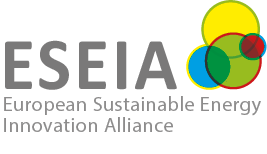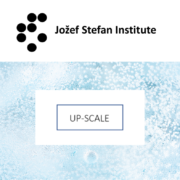Jožef Stefan Institute Drives Decarbonization Efforts Through UPSCALE Project
As a valued member of the European Sustainable Energy Innovation Alliance (ESEIA), the Jožef Stefan Institute is playing a pivotal role in advancing innovative decarbonization strategies through the UPSCALE Project. This ambitious initiative, funded by Net Zero Cities, focuses on implementing pilot projects in three Slovenian municipalities—Kranj, Ljubljana, and Velenje—to test and refine innovative approaches to achieve climate neutrality.
About the Project
Running from 2023 to 2026, the UPSCALE project is designed to foster systemic changes in urban management and leadership structures, ensuring greater efficiency, transparency, and responsiveness in decarbonization efforts. The project highlights the unique strengths and innovative potential of each municipality:
- Kranj: Focused on traffic de-cluttering through digital platforms and a Mobility-as-a-Service (MaaS) application.
- Ljubljana: Exploring the use of excess heat from high-temperature systems like industry and data centers to enhance the city’s local energy concept and climate atlas.
- Velenje: Targeting reductions in carbon emissions from public buildings and residential facilities using a data management tool that evaluates factors such as building insulation, construction year, and renewable energy potential.
Citizen Engagement and Innovation Hubs
The project also emphasizes the active involvement of citizens and NGOs by establishing single points for citizen engagement in all three cities:
- Kranj: A digital platform and MaaS application to support mobility innovation.
- Ljubljana: An innovation junction fostering collaboration and education.
- Velenje: An Energy and Climate Office to provide counseling, training, and idea incubation.
These hubs will serve as platforms for education, events, workshops, and the co-creation of decarbonization solutions.
Transferring Knowledge and Expertise
Through the UPSCALE project, the Jožef Stefan Institute brings its renowned expertise in sustainability and innovation to support knowledge transfer and collaboration at the local, national, and European levels. This aligns with the goals of the Mission 100 Climate-Neutral and Smart Cities by 2030, further showcasing the Institute’s leadership in tackling climate challenges.
For more information about the UPSCALE project and its impact, visit the project page on ESEIA’s website.
The involvement of the Jožef Stefan Institute highlights the strength and diversity of ESEIA members in driving innovative solutions for a sustainable future.



